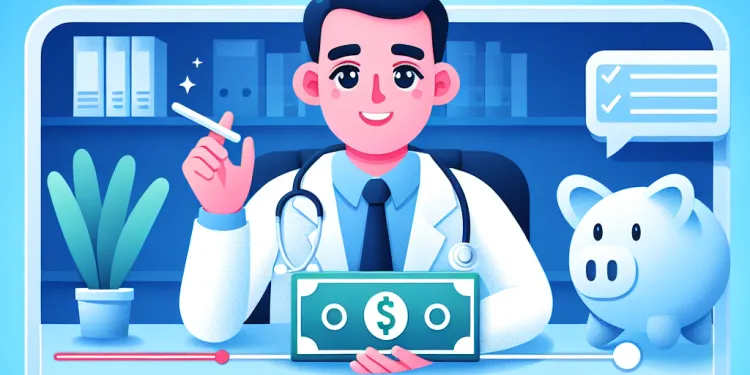
Find Help
More Items From Ergsy search
-
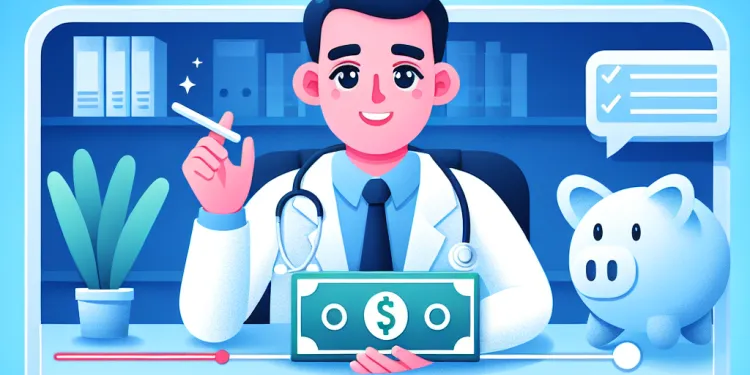
Should I see a doctor for a cold?
Relevance: 100%
-

Will I see a doctor?
Relevance: 82%
-
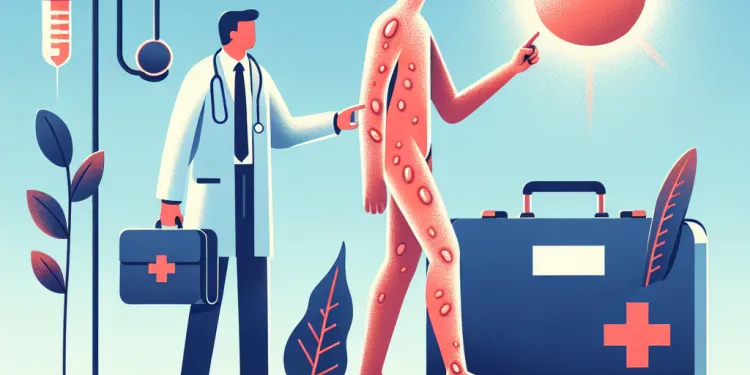
When should I see a doctor for psoriasis?
Relevance: 62%
-

When should I see a doctor for nettle rash?
Relevance: 59%
-

How often should someone with asthma see a doctor?
Relevance: 57%
-

Is it necessary to see a doctor for whiplash after a car accident?
Relevance: 57%
-
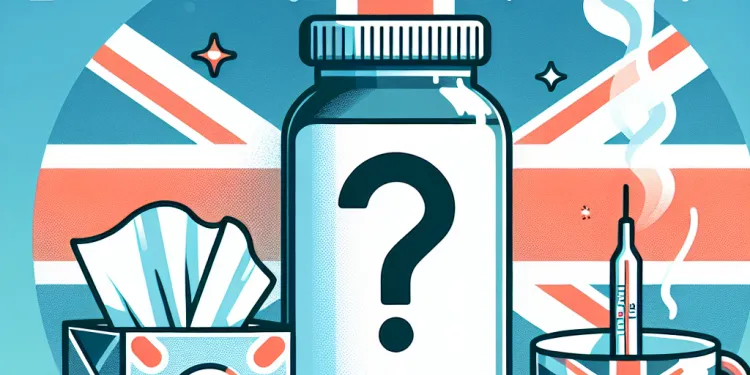
Can I take antibiotics for a cold?
Relevance: 54%
-
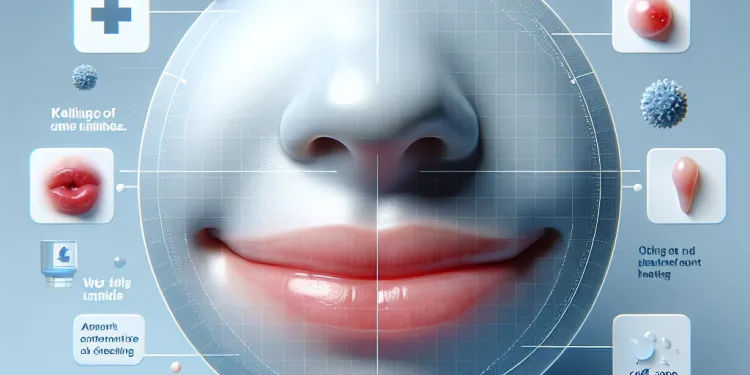
What are Cold Sores?
Relevance: 50%
-

Is there a cure for cold sores?
Relevance: 49%
-

How soon should you see a doctor if you suspect appendicitis?
Relevance: 48%
-

What are the common symptoms of a cold?
Relevance: 45%
-

When should I see a doctor about potential testicular cancer?
Relevance: 44%
-
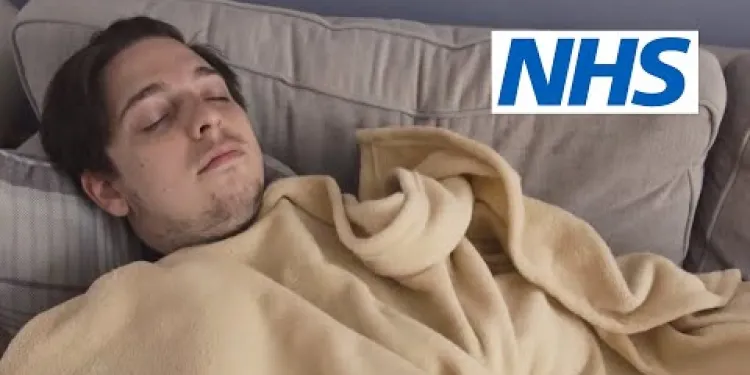
How to treat a cold | NHS
Relevance: 44%
-

Can cold weather cause a cold?
Relevance: 44%
-

How to Treat a Common Cold
Relevance: 43%
-

Is it safe to exercise with a cold?
Relevance: 42%
-

How long does a common cold typically last?
Relevance: 41%
-

Is there a way to cure a cold quickly?
Relevance: 40%
-
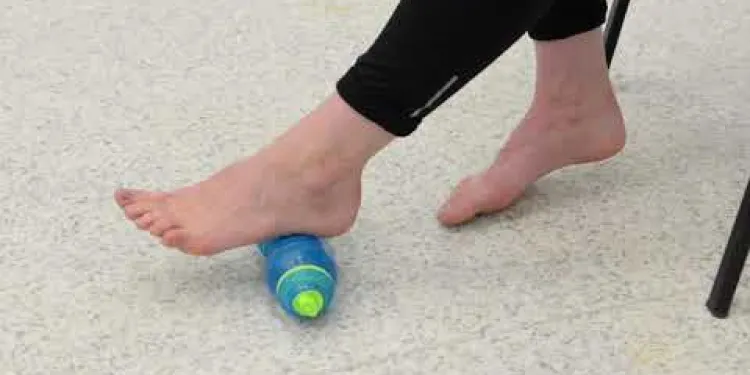
Plantar Fascia Cold Therapy
Relevance: 40%
-

Are cold sores contagious?
Relevance: 40%
-
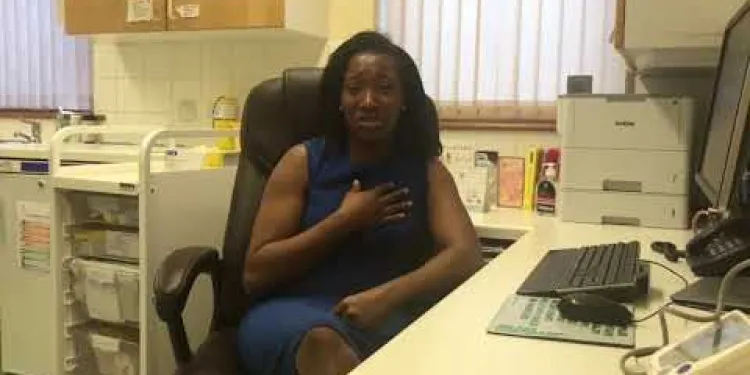
What should you do if you have a cough or cold?
Relevance: 39%
-

How often should someone with heart failure see their doctor?
Relevance: 39%
-
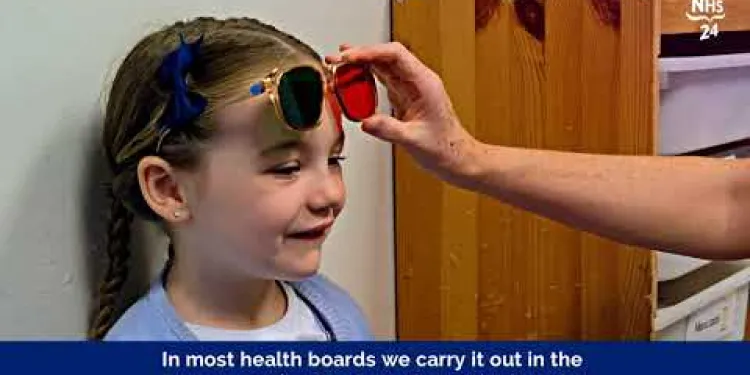
See4School
Relevance: 39%
-

What causes cold sores?
Relevance: 38%
-
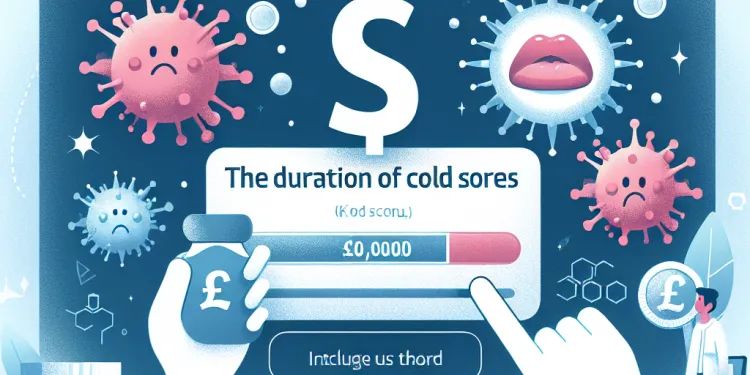
How long do cold sores last?
Relevance: 38%
-

What are the symptoms of a cold sore?
Relevance: 38%
-

How are cold sores transmitted?
Relevance: 38%
-

How can I prevent cold sores?
Relevance: 37%
-

What triggers a cold sore outbreak?
Relevance: 37%
-

Is Vitamin C effective against colds?
Relevance: 36%
-

Is it safe to take cold showers during a heatwave?
Relevance: 35%
-

Can orange juice help prevent colds?
Relevance: 35%
-

Do I need a referral to see a chiropractor?
Relevance: 35%
-

Can I use a humidifier to help with my cold symptoms?
Relevance: 35%
-
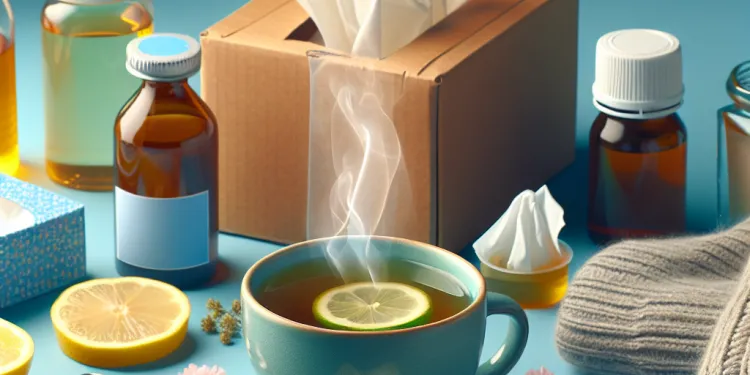
How can I treat a cold at home?
Relevance: 34%
-

How do I treat my child's cold? (9 - 30 months) | NHS
Relevance: 34%
-

Is it okay to use ice packs or cold showers to cool down?
Relevance: 34%
-
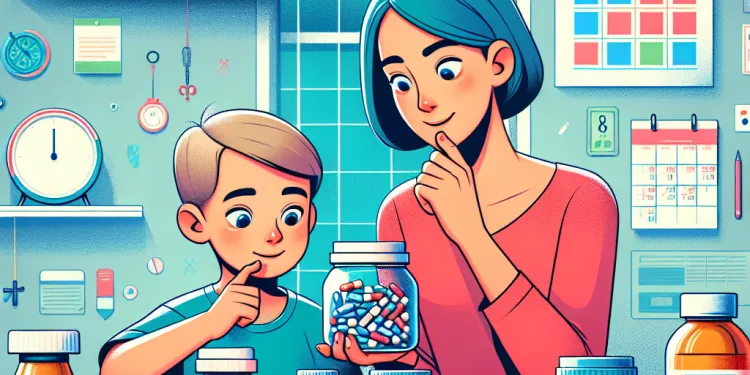
Can children take the same cold medications as adults?
Relevance: 33%
-
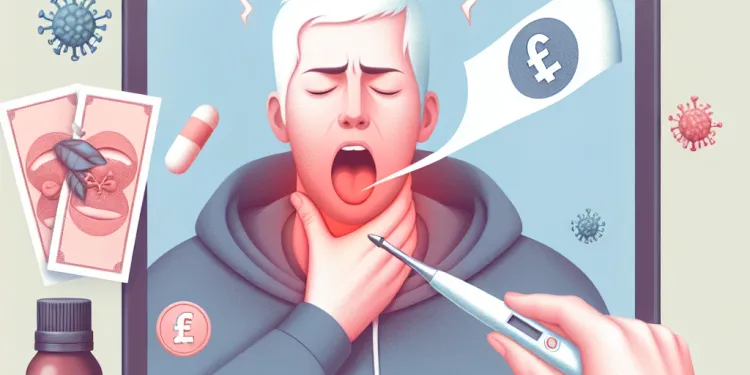
What is the best way to treat a sore throat from a cold?
Relevance: 32%
-
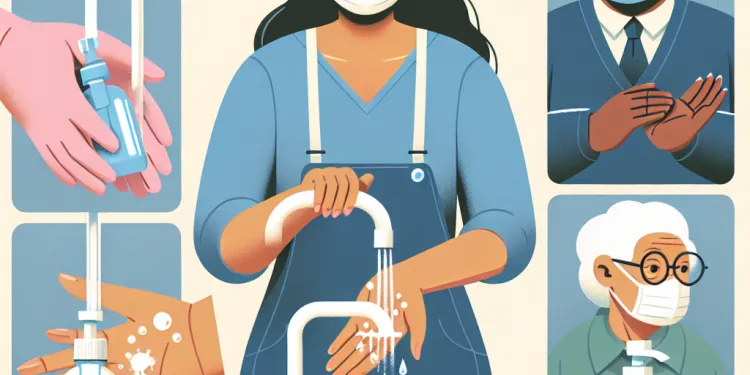
How can I prevent spreading my cold to others?
Relevance: 32%
Should I See a Doctor for a Cold?
Colds are a common ailment that affect millions of people every year, particularly in the colder months. While most colds resolve on their own, knowing when to seek medical attention can be important for your health and peace of mind. Understanding the symptoms and when medical intervention is necessary can help you manage your health effectively.
Understanding Cold Symptoms
The common cold is caused by a viral infection, primarily affecting the nose and throat. Typical symptoms include a runny or stuffy nose, sore throat, coughing, sneezing, headaches, and body aches. Symptoms usually appear one to three days after exposure to a cold virus and can last for 7 to 10 days. In most cases, rest, hydration, and over-the-counter medications are sufficient to alleviate symptoms.
When to Visit a GP
While colds generally do not require professional medical attention, there are circumstances where seeing a GP in the UK is advisable. If your symptoms persist beyond ten days, worsen with time, or if you experience a high fever (above 38°C), it is wise to consult a doctor. Additionally, individuals with underlying health conditions, such as asthma, diabetes, or a compromised immune system, should seek medical advice earlier to prevent complications.
Concerns About Children and Elderly
Children and older adults are more vulnerable to complications from a cold, such as ear infections or pneumonia. If a child under three months old has a cold or exhibits symptoms like unusual irritability, difficulty breathing, or difficulty eating, medical advice should be sought promptly. Similarly, the elderly should consult their GP if they experience severe symptoms or have existing health concerns.
Self-Care and Prevention
Practicing good hygiene, such as frequent hand washing and using tissues when sneezing or coughing, can help prevent the spread of viruses. Staying hydrated, getting plenty of sleep, and maintaining a healthy diet support the immune system's ability to fight off colds. If symptoms are mild, rest and self-care are typically effective remedies without the need for a doctor's visit. However, staying informed about when to seek medical assistance can ensure your health is monitored, preventing potential complications.
Should I See a Doctor for a Cold?
Colds make many people sick, especially when it is chilly outside. Most of the time, colds go away by themselves. However, knowing when to visit a doctor can be good for your health and make you feel better. Understanding the signs and when to get help can help you stay healthy.
Understanding Cold Symptoms
A cold happens because of a virus. It mainly affects your nose and throat. Common signs of a cold are a runny or stuffy nose, a sore throat, coughing, sneezing, headaches, and body aches. These signs usually start one to three days after catching a cold and can last about a week. To feel better, you can rest, drink water, and use medicines from the pharmacy.
When to Visit a GP
Most of the time, you do not need to see a doctor for a cold. But, if you are in the UK and your cold lasts more than ten days, gets worse, or you have a high fever (over 38°C), it is a good idea to see a doctor. Also, if you have health problems like asthma or diabetes, or a weak immune system, you should talk to a doctor sooner.
Concerns About Children and Elderly
Kids and older people can have more problems from a cold, like ear infections. If a baby under three months old is sick or is very fussy, has trouble breathing or eating, see a doctor quickly. Older people should also see a doctor if they feel very sick or have other health problems.
Self-Care and Prevention
Washing hands often and using tissues when sneezing or coughing can help stop germs from spreading. Drinking water, sleeping well, and eating healthy food help your body fight the cold. If the cold is not too bad, resting can help you feel better. But knowing when to see a doctor can make sure you stay healthy and avoid problems.
Frequently Asked Questions
What are the common symptoms of a cold?
Common symptoms of a cold include a runny or blocked nose, sore throat, sneezing, coughing, and sometimes a slight fever.
Should I see a doctor for a common cold?
In most cases, you do not need to see a doctor for a common cold. Home remedies and over-the-counter medications can help alleviate symptoms.
When should I consult a doctor about my cold?
You should consult a doctor if your symptoms are severe, last more than three weeks, or if you have difficulty breathing or chest pain.
Can a cold lead to more serious conditions?
While a common cold is usually mild, it can sometimes lead to more serious conditions like bronchitis or pneumonia, especially in people with weakened immune systems.
What self-care measures can I take at home for a cold?
Rest, stay hydrated, use over-the-counter medications like paracetamol to relieve symptoms, and a humidifier to ease congestion.
How long does a common cold typically last?
A common cold typically lasts around 7 to 10 days. If symptoms persist longer than this, consider seeking medical advice.
Are antibiotics effective against the common cold?
No, antibiotics are not effective against the common cold as it is caused by viruses, not bacteria.
Can over-the-counter medicines cure a cold?
Over-the-counter medicines cannot cure a cold but can help alleviate symptoms such as pain and congestion.
Is it appropriate to use nasal sprays for congestion during a cold?
Nasal sprays can provide temporary relief from congestion, but should not be used for more than a few days, as overuse can worsen congestion.
What should I do if my child has a cold?
Ensure your child gets plenty of rest and fluids. You can use children's paracetamol or ibuprofen to relieve symptoms. Consult a doctor if their condition worsens.
Are there any natural remedies for colds?
Some people find relief with natural remedies like honey, ginger tea, or steam inhalation, though these do not cure a cold.
Can I prevent catching a cold?
Practice good hygiene by washing hands regularly, avoid close contact with those who are sick, and maintain a healthy lifestyle to support your immune system.
Is it normal to experience a loss of taste and smell during a cold?
Yes, a cold can lead to temporary loss of taste and smell due to nasal congestion.
Can getting a flu jab prevent a cold?
No, the flu jab does not prevent colds, but it protects against influenza viruses, which are different from those causing the common cold.
When is it important to follow up with a healthcare provider after a cold?
Follow up with a healthcare provider if symptoms like a severe headache, high fever, or persistent cough develop, which could indicate a secondary infection.
What are common signs of a cold?
A cold makes you feel sick. Here are some signs you might have a cold:
- Your nose is stuffy or runny.
- You cough a lot.
- Your throat feels sore.
- You might sneeze often.
- You feel very tired.
When you feel this way, you can:
- Rest and relax.
- Drink lots of water.
- Ask an adult to help you.
Using pictures or asking someone to read the words with you can help understand better.
When you have a cold, you might feel:
- Your nose is runny or blocked.
- Your throat hurts.
- You sneeze a lot.
- You cough.
- Sometimes, you might have a small fever.
These feelings can be normal when you have a cold. If you feel too sick, you should talk to a grown-up, doctor, or someone who can help. Drinking water and resting can help you feel better.
When should I see a doctor for a cold?
A cold is a common sickness. Most people get better on their own. But sometimes, it's good to see a doctor. Here are some simple rules:
- If you feel better in a few days, you don't need to see a doctor.
- If you feel very sick or have a high fever, you should go to the doctor.
- If you find it hard to breathe, tell an adult and see a doctor.
Helpful tips:
- Rest a lot and drink water.
- Ask an adult to help you take medicine if needed.
- Wash your hands to stop spreading germs.
You usually don't need to see a doctor for a common cold. You can feel better with home care and medicine you buy at the store.
When should I talk to a doctor about my cold?
It is important to know when to talk to a doctor if you have a cold. Here are some tips:
- If your cold lasts more than 10 days, talk to a doctor.
- If you have a high fever, see a doctor.
- If it is hard to breathe, tell a doctor.
- If you have chest pain, go to a doctor.
You can ask someone to go with you to the doctor if that helps.
You should talk to a doctor if you feel very sick, your sickness lasts more than three weeks, or if you have trouble breathing or chest pain.
Can a cold make you very sick?
Sometimes a cold can lead to bigger health problems. It is important to rest and drink lots of water when you have a cold.
If you find it hard to read this, you can ask someone to read it to you. You can also use a tool that reads texts out loud. These can help you understand better.
A cold usually makes you feel a little sick. But sometimes it can make you very sick and cause problems like bronchitis or pneumonia. This happens more with people who don't have strong bodies to fight off germs.
What can I do at home if I have a cold?
Get plenty of rest. Drink lots of water. You can take medicines like paracetamol to feel better. Use a humidifier to help breathe easier.
How long does a cold usually last?
A cold can last about one week.
Here are some tips to feel better:
- Rest a lot
- Drink water
- Eat healthy food
You can ask a grown-up for help if you feel sick.
The common cold usually lasts about 7 to 10 days. If you still feel sick after this, it is a good idea to talk to a doctor.
Do antibiotics help you get better from a cold?
No, antibiotics don't help with colds because colds come from viruses, not bacteria.
Can you get better from a cold with medicine from the store?
You can't cure a cold with store-bought medicine, but it can help you feel better. It can help with aches and stuffy noses.
Can you use nose sprays when you have a cold and stuffy nose?
When you have a cold, your nose might feel blocked. This is called congestion.
You can use special sprays for your nose to help. These are called nose sprays.
If your nose feels blocked, nose sprays can help you breathe better.
You can talk to a doctor or a nurse. They can tell you if using nose sprays is a good idea for you.
Nasal sprays can help clear a stuffy nose for a short time. But don't use them for more than a few days in a row. Using them too much can make your nose feel more blocked.
What to Do If Your Child Has a Cold
If your child has a cold, don't worry! Here are some easy steps to help them feel better:
- Make sure they rest a lot. Sleep helps the body get better.
- Give them plenty of water to drink. Water keeps the body strong.
- Use a tissue or a soft cloth to wipe their nose.
- If they feel hot, you can give them medicine for fever. Check with a doctor or nurse first.
Remember, colds usually go away in a few days. If you're not sure what to do, it's always okay to ask a doctor or nurse for help.
Make sure your child gets lots of sleep and drinks water or juice. You can give them children's medicine like paracetamol or ibuprofen to help them feel better. Talk to a doctor if your child gets more sick.
What natural ways can help with a cold?
Do you feel sick with a cold? Here are some simple ways to feel better:
- Rest: Sleep helps your body fight the cold.
- Drink water: Water or juice keeps you from getting too dry.
- Honey: A teaspoon of honey may help soothe a sore throat. Do not give honey to babies under 1 year old.
- Chicken soup: Warm soup can make you feel better and is easy to eat.
- Gargle salt water: Mix a little salt in warm water and gargle to help a sore throat.
- Use a humidifier: This adds moisture to the air, which can make breathing easier.
These are natural ways to help you feel better when you have a cold. Always ask an adult or doctor if you have questions.
Some people feel better using things from nature, like honey, ginger tea, or breathing in steam. But these do not make a cold go away.
How can I stop getting a cold?
Here are some simple ways to help you stay healthy:
- Wash your hands often with soap and water.
- Try not to touch your face, especially your eyes, nose, and mouth.
- Stay away from people who are sick.
- Eat healthy foods like fruits and veggies.
- Get enough sleep every night.
- Exercise to keep your body strong.
If you need help, ask an adult or use pictures and charts to remember what to do.
Keep clean by washing your hands often. Stay away from people who are sick. Eat healthy food and get enough sleep to keep your body strong.
Can you lose your taste and smell when you have a cold?
Yes, it is normal.
You might not taste or smell things well when you have a cold. This is because your nose is stuffy, and it is hard to breathe.
It should get better when you are healthy again.
If you want, you can use a tissue to blow your nose. This might help you smell better.
Yes, a cold can make it hard to taste and smell for a little while. This happens because your nose is blocked.
Can a flu shot stop a cold?
A flu shot helps keep you safe from the flu.
The flu and a cold are different. A flu shot will not stop you from getting a cold.
To stay healthy, wash your hands, eat well, and rest.
No, the flu shot does not stop colds. But it does protect you from the flu. The flu and colds are caused by different viruses.
When should you see a doctor after a cold?
If you have a cold, you might need to see a doctor.
Here are some signs to look for:
- You have a high fever.
- Your cough doesn’t go away.
- You feel worse instead of better.
- You have trouble breathing.
It’s a good idea to ask an adult for help. You can use a thermometer to check your temperature. If you need to see a doctor, you can call them or have someone help you.
If you get a bad headache, high fever, or a cough that won't go away, visit a doctor. These could be signs of another illness.
Useful Links
This website offers general information and is not a substitute for professional advice.
Always seek guidance from qualified professionals.
If you have any medical concerns or need urgent help, contact a healthcare professional or emergency services immediately.
Some of this content was generated with AI assistance. We’ve done our best to keep it accurate, helpful, and human-friendly.
- Ergsy carfully checks the information in the videos we provide here.
- Videos shown by Youtube after a video has completed, have NOT been reviewed by ERGSY.
- To view, click the arrow in centre of video.
- Most of the videos you find here will have subtitles and/or closed captions available.
- You may need to turn these on, and choose your preferred language.
- Go to the video you'd like to watch.
- If closed captions (CC) are available, settings will be visible on the bottom right of the video player.
- To turn on Captions, click settings .
- To turn off Captions, click settings again.
More Items From Ergsy search
-

Should I see a doctor for a cold?
Relevance: 100%
-

Will I see a doctor?
Relevance: 82%
-

When should I see a doctor for psoriasis?
Relevance: 62%
-

When should I see a doctor for nettle rash?
Relevance: 59%
-

How often should someone with asthma see a doctor?
Relevance: 57%
-

Is it necessary to see a doctor for whiplash after a car accident?
Relevance: 57%
-

Can I take antibiotics for a cold?
Relevance: 54%
-

What are Cold Sores?
Relevance: 50%
-

Is there a cure for cold sores?
Relevance: 49%
-

How soon should you see a doctor if you suspect appendicitis?
Relevance: 48%
-

What are the common symptoms of a cold?
Relevance: 45%
-

When should I see a doctor about potential testicular cancer?
Relevance: 44%
-

How to treat a cold | NHS
Relevance: 44%
-

Can cold weather cause a cold?
Relevance: 44%
-

How to Treat a Common Cold
Relevance: 43%
-

Is it safe to exercise with a cold?
Relevance: 42%
-

How long does a common cold typically last?
Relevance: 41%
-

Is there a way to cure a cold quickly?
Relevance: 40%
-

Plantar Fascia Cold Therapy
Relevance: 40%
-

Are cold sores contagious?
Relevance: 40%
-

What should you do if you have a cough or cold?
Relevance: 39%
-

How often should someone with heart failure see their doctor?
Relevance: 39%
-

See4School
Relevance: 39%
-

What causes cold sores?
Relevance: 38%
-

How long do cold sores last?
Relevance: 38%
-

What are the symptoms of a cold sore?
Relevance: 38%
-

How are cold sores transmitted?
Relevance: 38%
-

How can I prevent cold sores?
Relevance: 37%
-

What triggers a cold sore outbreak?
Relevance: 37%
-

Is Vitamin C effective against colds?
Relevance: 36%
-

Is it safe to take cold showers during a heatwave?
Relevance: 35%
-

Can orange juice help prevent colds?
Relevance: 35%
-

Do I need a referral to see a chiropractor?
Relevance: 35%
-

Can I use a humidifier to help with my cold symptoms?
Relevance: 35%
-

How can I treat a cold at home?
Relevance: 34%
-

How do I treat my child's cold? (9 - 30 months) | NHS
Relevance: 34%
-

Is it okay to use ice packs or cold showers to cool down?
Relevance: 34%
-

Can children take the same cold medications as adults?
Relevance: 33%
-

What is the best way to treat a sore throat from a cold?
Relevance: 32%
-

How can I prevent spreading my cold to others?
Relevance: 32%


